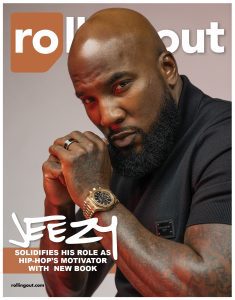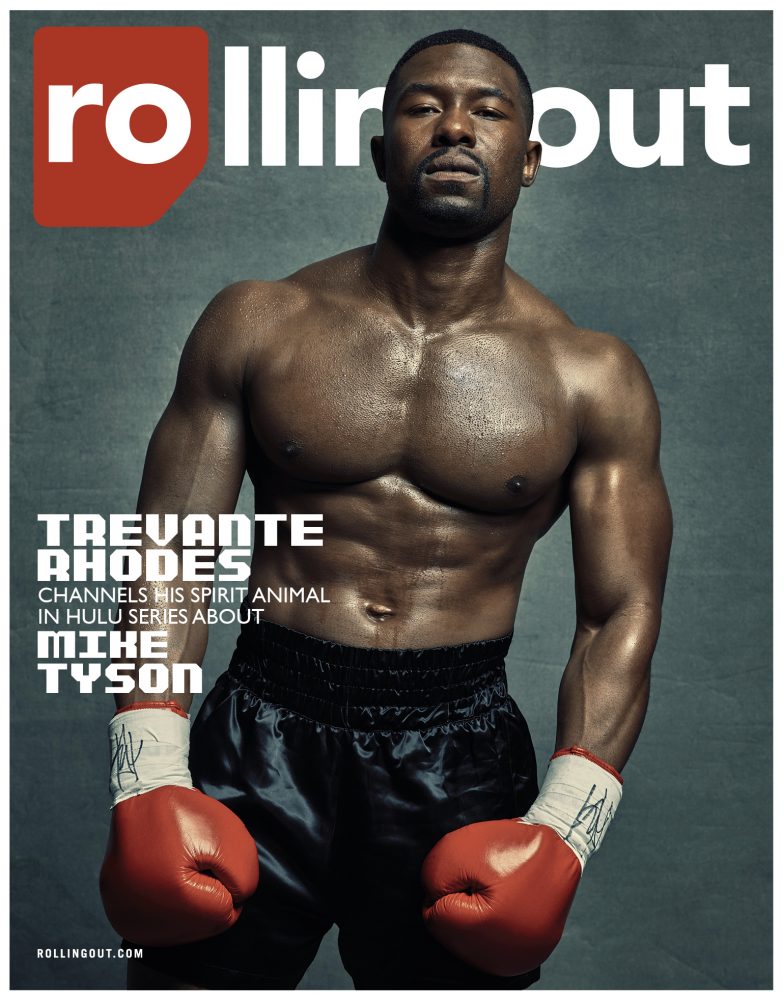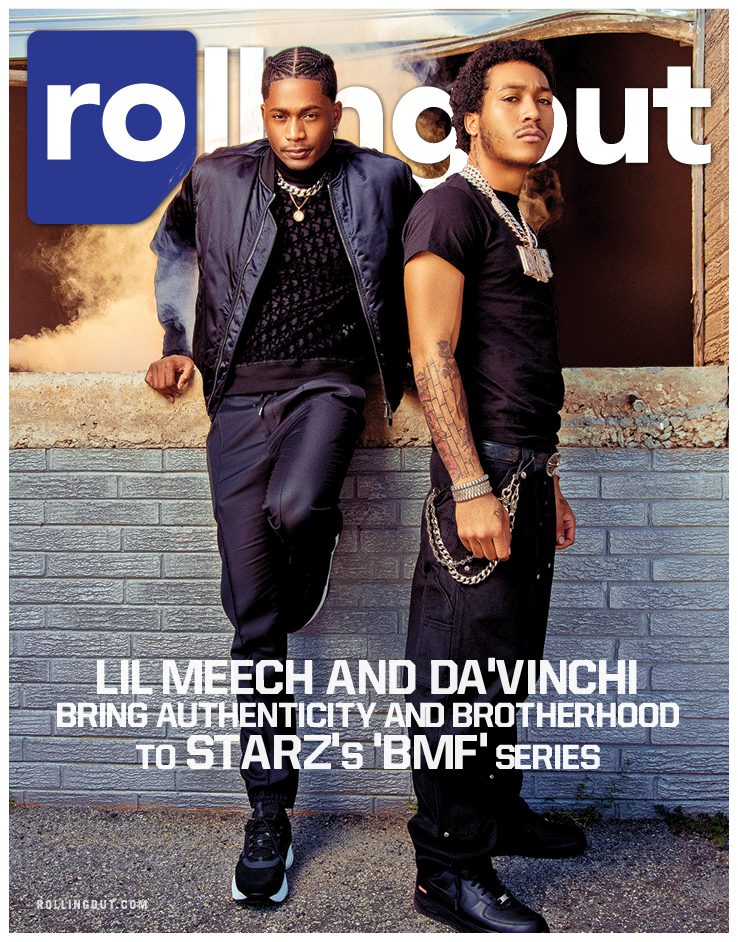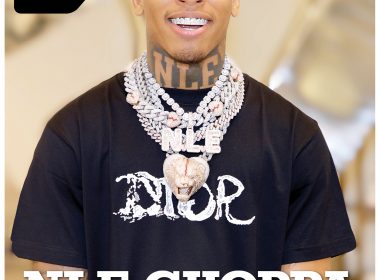
It’s hard to put Curtis “50 Cent” Jackson into a box of any design. He slays on the mic, creates constant social media chaos with humorous yet biting commentary about his contemporaries, and he’s one heck of businessman. To add, Jackson displays his chops as an actor in the lauded cable TV drama “Power,” for which he also holds executive producer credits. Next up, Jackson is set to star in Southpaw, where he plays Jordan Mains, alongside Hollywood heartthrob Jake Gyllenhaal, who delivers a raw performance of fictitious boxer Billy Hope.
How did you prepare for your latest film, Southpaw?
Well, what I did was, I met with Antoine [Fuqua]. He sent for me to come down and talk to him about the character in this project. … We were actually in a boxing gym in downtown Manhattan, because Jake and Antoine were both training together to make the communications better … [Training] just left this camaraderie between him and Jake to a point that their communication was on the next level because they’d been there doing all the work together. What was really smart is they taught Jake the combinations while training …
We talked about the [Jordan Mains] character and like it’s easy to play slime, it’s easier to play the “Don” [King] piece, if you want to use that as an example, and [Don’s] not even as bad as people portray him — like you can look at Mike [Tyson] and tell he ain’t the kind of person that will let you take, just take his money from him — like, boxing is a sport where the lions are actually afraid of the mice. And it’s because in between time, nobody tells the fighters what to do. After they’ve made the money, they go off and do whatever they want, however they want, and then when they come back, it’s like, the lion is kinda approaching the mice in a different way because this is where I get my food.
It’s been an interesting piece for me because I’ve been able to utilize my involvement in the sport of boxing; it really comes through my relationship with Floyd [Mayweather]. And with the [contacts] that I was able to use, all the information that I’ve ever used, and everything that I’ve experienced in that time period was in this film project.
At what point in your career did you realize that you wanted to go into acting?
For me, it’s like, I wanted to do it, but I couldn’t sacrifice what I was doing in music and in other areas, so because Hollywood is hurry up and wait, like, “Hurry up, get good enough, now wait for somebody to offer you the opportunity,” I went toward the financing part, that way I can confirm when the project’s going to be green lit and I know it starts on the day it says it starts.
Your mentality is very much that of a champion, with the way that you pursue business opportunities. Why is it important for you to to maintain that championship mentality?
You know what, what you’re saying is what I developed and it’s why I am successful. It’s because a lot of times, you gotta figure out how to be confident in yourself when [people aren’t] around to support it, ’cause it’s just your idea. And when you can truly believe in that passion, find one person at a time that’ll support it.
Like Courtney would say — Courtney Kemp is the writer and show runner for “Power” — she’d tell you that I’m a little weird, because she said, “He told me this project was gonna be exactly what it is right now.”
She obviously trusts you. People seem to trust your brand. To what do you attribute that trust?
I don’t have time to bulls—. My energy is, it’s about winning, man, it’s just, when I say that I have developed a fearless approach, it’s the truth. … I thought the way that I [could] offer something that was special, that was different, was by offering a little bit of me. Because I may be able to beat you at something, but I can’t beat you at being you. And once that becomes the cool factor, ’cause you’re cool now, I gotta just work around you.
Because you are cool at that point. Ya know what I’m sayin’? So it’s like, when I watch things now, it’s trending so hard, like when I fell in love with hip-hop music, it was so important for me to be different that you go “oh, that was dope.” Now, you’re still writing something completely different from what that person just did that was dope, because when yours come through, if it’s the same, it feels like, “it’s cool. It’s kinda the same type of joint.” But if it’s the next thing that happens in our culture, they go, “yo!” And you knock ‘em over because … Get Rich or Die Tryin’ didn’t have to match those other projects [that were] launched before it, [people were] able to embrace it and it was able to be recognized as a classic. They don’t even talk about the second [album], and it sold 10 million records.
Rapper Kidd Kidd sounds a lot like you. How do you feel about up-and-comers imitating established artists?
Kidd Kidd, for me … look, when I hear artists that sound, that have similar styles, I don’t turn my nose up at ‘em. I think it’s saying that the material that you created [made] an impression. … When they’re not copying, when they’re doing it from their perspective and it’s their energy connected to it, I like it, I do, because I feel like it’s gonna continue to live. The style [will grow] and go on. How many times have you heard a Biggie, a version of Biggie, or a Jay Z soundalike, or a guy who kinda has that similar energy, and it’s because it wasn’t based on sales. It was based on passion. Like the person liked that so much that they went and did it … if that’s the case, then everybody should be Eminem — ’cause he’s selling like 80 million records more than those people. It’s just their favorite artist, if their vocal tones match, if their cadence is [the same], they learn it from listening over and over and doing it over and over … you know, I don’t turn away from it. That’s like if I see someone that is a true entrepreneur, I’ll go, “I need to get with him.” Why? He’s gonna win.
Why is it important for you to identify what the next trending topic or the next big business is?
That’s how you sustain success. … I learn more about myself throughout my journey and I need to feel the verification connected to winning repeatedly. Like, one big win, “pow!” and it’s dead and you go, “what I’mma do tomorrow?” You know what I’m saying? Like, sure, it does create the stability that allows me to invest and do different things in different areas, but it doesn’t take away what I need to feel when it works.
So, it’s addictive?
Yeah.
What drives you on a daily basis?
You know what? I think for me, like I said, I don’t really associate myself with or work on projects I don’t believe are really the right projects. And then once I get into it, a lot of the noise stops. Like, it’s just me focused on that, and I’ll see myself at the end of the race winning the race already.
Images by: Mike Melendy

















